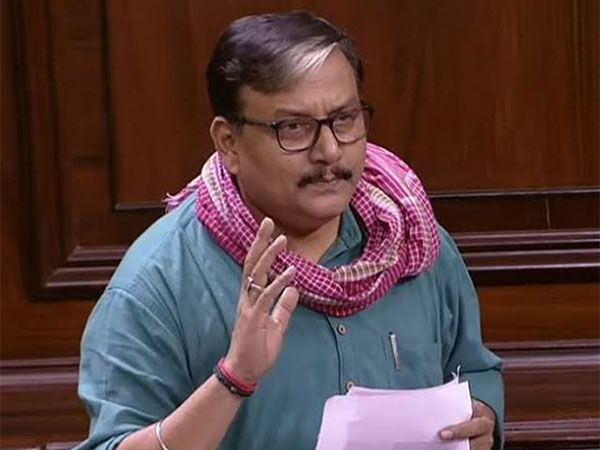The Rashtriya Janata Dal (RJD) is ready to challenge the Waqf Amendment Bill in the Supreme Court, in which Rajya Sabha MP Manoj Jha and party leader Fayaz Ahmed will file a petition on behalf of the party.
The two sides will knock the door to the Supreme Court to challenge the provisions of the bill on Monday, Monday, as they argue that it may have a significant impact on the management of Waqf properties.
The Waqf Amendment Bill has created controversy in political circles and many opposition parties are opposing it.
Earlier, the Congress party also launched a legal battle against the Bill in the Supreme Court, expressing concern over its possible impact on the management and monitoring of Waqf properties in India.
Congress MP Mohammad Javed challenged the Waqf (Amendment) Bill, 2025 on April 4 and approached the Supreme Court and said that it is discriminated against the Muslim community and violates their fundamental rights.
The petition stated that the bill discriminates against the Muslim community, as it has imposed restrictions that are not present in the administration of other religious institutions.
Javed Waqf (Amendment) Bill was also a member of the Joint Parliamentary Committee on 2024.
The petition filed through advocate Anas Tanveer states that the bill violates Article 14 (right to equality) of the Constitution, 25 (freedom to follow religion), 26 (freedom of management of religious affairs), 29 (minority rights) and 300A (right to property).
It states, “This bill imposes arbitrary restrictions on Waqf properties and their management, which weakens the religious autonomy of the Muslim community.”
According to the petition, the construction of a person has been banned on the construction of a wagf based on the period of religious practice of a person.
On 4 April, the head of All India Majlis-e-Ittehadul Muslimeen and Hyderabad MP Asaduddin Owaisi also approached the Supreme Court against the Waqf Amendment Bill.
Shiv Sena MP Sanjay Raut on Saturday confirmed that the party will not knock the Supreme Court door against the Waqf (Amendment) Bill, 2025, indicating that the matter has been closed as far as the party is concerned.
Talking to the media, Raut said, “No. We have done our work. We have said what we had to say and have decided. This file has now closed for us.”
On Friday, he strongly criticized the Waqf Amendment Bill passed by Parliament and said that it is a business or business step rather than a real effort to protect Muslim interests.
This bill passed in both Lok Sabha and Rajya Sabha is now awaited for the approval of President Draupadi Murmu to become an Act.
In a post on X, All India Muslim Personal Law Board vowed to protest against the bill across the country.
AIMPLB said, “The government’s stand on the Waqf Amendment Bill 2025 is regrettable. The All India Muslim Personal Law Board will soon take nationwide protests and legal action against the Waqf Amendment Bill 2025.”
Aam Aadmi Party (AAP) MLA Amanatullah Khan challenged the Waqf (Amendment) Bill 2025 and approached the Supreme Court (SC) on Saturday.
The bill passed in Lok Sabha and Rajya Sabha is now awaited for the approval of President Draupadi Murmu, so that this can be enacted. The Waqf Amendment Bill 2025 was passed after two days of hot debate in both houses of Parliament.
AAP MLA Khan argues that this bill reduces religious and cultural autonomy of Muslims, enables arbitrary executive intervention, and weakens the rights of minorities in the management of its religious and charitable institutions.
According to the petition, these amendments affect the main aspects of the Waqf Act, including the definition, construction, registration, governance, dispute solution and transfer of Waqf properties.
The Association for Protection of Civil Rights, an NGO, has also filed a petition in the Supreme Court opposing the bill.
President Draupadi Murmu has approved the Waqf (Amendment) Bill, 2025, which was passed by Parliament during the budget session. The President has also approved the Muslim Waqf (Relations) Bill, 2025, which was passed by Parliament.
The notification of the Law Ministry issued on Saturday stated that the President has given his approval to both the bills.
On Friday, the Rajya Sabha passed the bill in favor of 128 votes and in opposition of 95 votes, while the Lok Sabha approved the bill after a long debate, in which 288 members voted in its favor and 232 voted in protest.
Earlier, Prime Minister Narendra Modi said that the passage of Waqf (Amendment) Bill 2025 is a “important moment” and this will help marginalized people who have been deprived of both voice and opportunity. “
Prime Minister Modi said in a post on X, “The passage of the Waqf (Amendment) Bill and the Muslim Waqf (Dismal) Bill by both houses of Parliament is an important moment in our collective search for socio-economic justice, transparency and inclusive development. This will help especially those who have been marginalized for a long time and thus they have been deprived of both voice and opportunity.”
Waqf (Amendment) Bill, 2025 passed. It aims to improve the management of Waqf properties, empower the stakeholders related to it, improve the efficiency of survey, registration and settlement process and develop Waqf properties.
Although its main objective is to manage Waqf properties, it aims to implement modern and scientific methods for better administration. The Muslim Waqf Act of 1923 was also canceled.
The bill, introduced for the first time in August last year, was revised after the recommendations of the Joint Parliamentary Committee. It amends the Basic Waqf Act of 1995, which aims to streamline the administration of Waqf properties across India. Its main features include improving the registration process and incorporating technology to increase the efficiency of the operation of Waqf Board.
The objective of this bill is to remove the shortcomings of the previous Act, increase the efficiency of Waqf boards, improve the registration process and increase the role of technology in the management of Waqf records.
